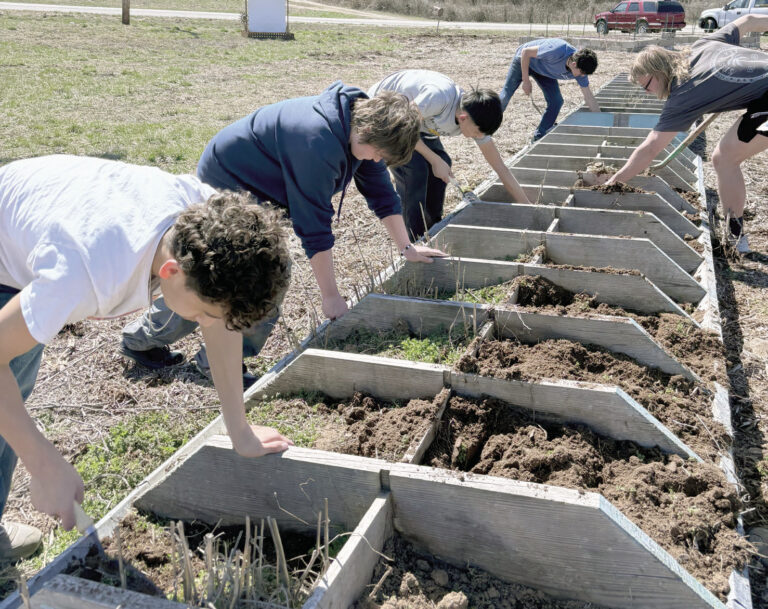PETA pushing county to investigate, bring charges for June 28 incident
County law enforcement are being urged by PETA to investigate and charge those responsible for the deaths of “thousands” of chickens that died while being transported to George’s during extreme heat in June.
A USDA memorandum of interview was submitted to address the “alarming number of dead on arrival birds at George’s Processing” on June 28 and the loss of process control.
According to the report, weather conditions that day included a heat advisory for heat indexes between 100-109 degrees, beginning in the afternoon.
The inspector reported going to the live hang department at about 4:30 p.m., observing several large piles of chickens dead on arrival (DOA) in numbers too numerous to count.
A pile was at the end of the live hang belt that feeds kill lines one and two, and another pile was on the floor below the belt that reached to the height of the belt.
“A live hang employee was standing on the pile of DOA birds, tossing handfuls of DOA birds from the end of the belt onto the floor,” the report said. “There was also a large pile of DOA birds between the stairs entering the live hang department and kill like two. The pile of DOA birds was many birds deep and extended the length of the kill line.”
The report said employees hanging on kill like two were hanging live birds and tossing DOA birds into the piles, making them deeper and wider, and the establishment was still dumping modules of birds.
“When I first arrived in live hang, I noticed two establishment employees on the floor attempting to address the DOA birds on the floor,” the report said. “The employees were placing DOA birds into condemn barrels and wheelbarrows and taking them outside to the wastewater backhoe.”
Arriving at the backhoe, the inspector noted the DOA birds were not being denatured, a process that colors or stains the birds to signify they are not fit for human consumption.
After it was brought to the attention of the live hang supervisor, employees began denaturing the DOA birds. “I observed modules of birds directly after being dumped onto the live hang belt and noticed a few DOA birds mixed in with the live birds,” the report said. “The live birds were panting and appeared stressed. The establishment ceased dumping birds shortly after my arrival to the department and went to their scheduled dinner break early. I remained in the live hang to watch the employees pick up and dispose of the DOA birds on the floor.”
The inspector said while watching this process, two live birds were observed buried within the DOA birds in two different wheelbarrows. The live hang supervisor and First Processing Manager were informed of the DOA process control issue and the forthcoming issuance of the memorandum of interview. The assistant plant manager was also later made aware of the forthcoming memorandum.
The report redacts the specific number of DOA birds on two trailers, but does say 54 percent of the total had died. The trailers had driven 24 miles to arrive at George’s at 4:31 and 4:55 p.m. The cooling fans and misters near the live hang dumper and in the holding shed were functional and in operation.
“The thousands of dead on arrival birds arriving in two trailers overwhelmed the capacity of the live hang department,” the report said. “In lieu of stopping to try to address the ever-increasing process control issue, the establishment continued to dump modules of birds and run both kill lines.
“This, combined with the lack of establishment employees on the floor to address the issue, led to numerous large, deep piles of DOA birds on the floor, which continued to expand.”
Daniel Paden, vice president of evidence analysis with PETA’s Cruelty Investigations Department, submitted a letter to Barry County Prosecutor Amy Boxx requesting her office, and a law enforcement agency as necessary, investigate and file applicable criminal charges against the individuals “responsible for the suffering of thousands of chickens who died while being hauled in extreme heat on June 28.”
“This conduct does not represent the otherwise exempt ‘normal or accepted practices of animal husbandry’ and thus may violate MO Rev Stat § 578.009.1(1), which prohibits failing to provide any animal with ‘normal and prudent attention to the [animal’s] needs … as necessary to maintain good health,’” Paden said. “Please note that the [U.S. Department of Agriculture’s Food Safety and Inspection Service (FSIS)] report carries no criminal or civil penalties and does not preempt criminal liability under state law for acts of cruelty to animals. Given that the FSIS hasn’t initiated a criminal prosecution of a licensed slaughterhouse for inhumane handling since at least 2007, charges under state law are these victims’ only chance at a measure of justice.”
Boxx confirmed she received Paden’s correspondence, saying any charges would have to be initiated by a law enforcement agency.
“I simply informed [PETA] of that fact,” she said. “It would be up to the sheriff’s office whether they choose to investigate.”
Boyd said he has been informed of the incident and is actively investigating.



